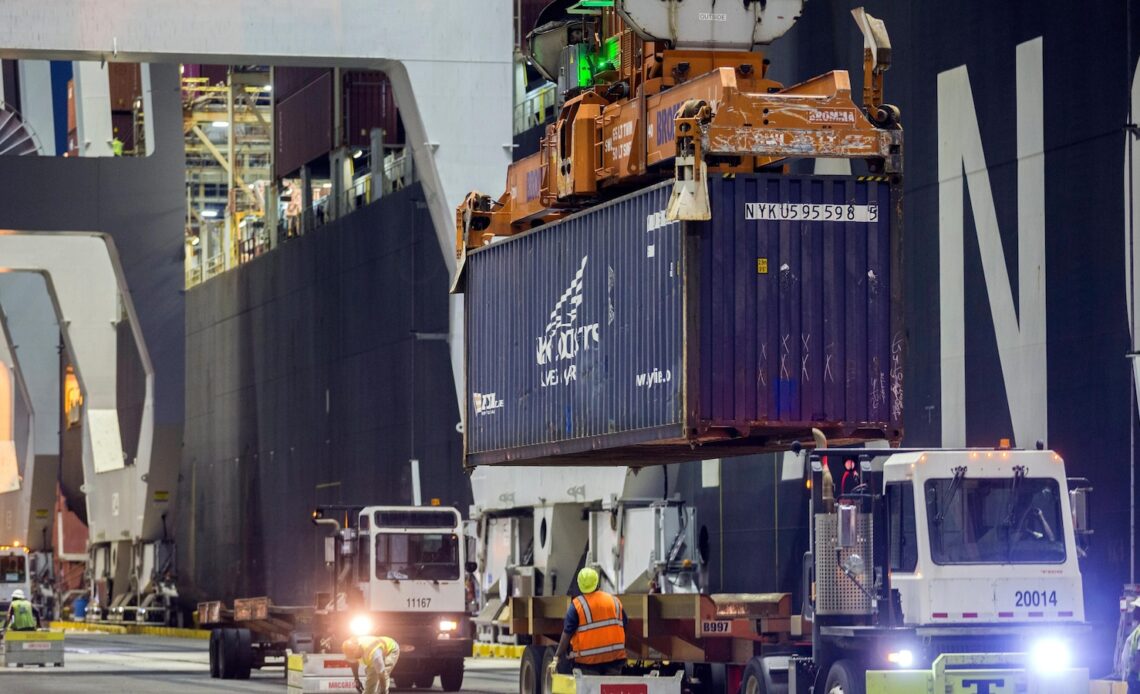NEW YORK — U.S. ports from Maine to Texas could shut down Tuesday if a union representing about 45,000 dockworkers carries through with a threatened strike.
A lengthy shutdown could raise prices on goods around the country and potentially cause shortages and price increases at big and small retailers alike as the holiday shopping season — along with a tight presidential election — approaches.
“First and foremost, we can expect delays to market. And those delays depend on really what the commodities are and priorities at the ports and how quickly things move,” said Mark Baxa, president of the Council of Supply Chain Management Professionals.
The International Longshoremen’s Association is demanding significantly higher wages and a total ban on the automation of cranes, gates and container-moving trucks that are used in the loading or unloading of freight at 36 U.S. ports. Those ports handle roughly half of the nations’ cargo from ships.
The contract expires between the International Longshoremen’s Association and the United States Maritime Alliance, which represents the ports, on Tuesday. The two sides haven’t held negotiations since June. A strike by the ILA workers would be the first by the union since 1977.
“The Ocean Carriers represented by USMX want to enjoy rich billion-dollar profits that they are making in 2024, while they offer ILA Longshore Workers an unacceptable wage package that we reject,” the ILA said in a statement on Monday.
The Associated Press reached out to a USMX spokesperson for comment.
While any port can handle any type of goods, some ports are specialized to handle goods for a particular industry. The ports that would be affected by the shutdown include Baltimore and Brunswick, Georgia, the top two busiest auto ports; Philadelphia, which gives priority to fruits and vegetables; and New Orleans, which handles coffee, mainly from South America and Southeast Asia, various chemicals from Mexico and North Europe, and wood products such as plywood from Asia and South America.
Other major ports affected include Boston; New York/New Jersey; Norfolk, Virginia; Wilmington, North Carolina; Charleston, South Carolina; Savannah, Georgia; Tampa, Florida; Mobile, Alabama; and Houston.
If a strike were deemed a danger to U.S. economic health, President Joe Biden could, under the 1947 Taft-Hartley Act, seek a court order for an 80-day cooling-off period. This would suspend the strike.
But Biden, during an exchange with reporters on Sunday,…
Click Here to Read the Full Original Article at ABC News: Business…

